#ruth tracy
Text
⚡️THUNDERDOGS ARE GO!⚡️








John: Bozori
Gordon: Shiba Inu
Alan: Beagle
Virgil: Newfoundland
Scott: Greyhound
Jefferson: Norwegian Elkhound
Sally/Ruth: Bearded Collie
Lucy: Samoyed
💜🧡🤍💛💙🧡💛❤️💚💙💜💖🖤🤎🤍
Happy Thunderbirds Day
To Everyone!~
Tagging: @dragonoffantasyandreality, @skymaiden32, @teapotteringabout, @jacksonstarkiller, @alexthefly, @avengedbiologist, @louthestarspeaker, @crunchyluigi, @squiddokiddo, @gumnut-logic, @janetm74, @godsliltippy, @gaviiadastra, @katblu42, @lenle-g, @thundergirl007, @ak47stylegirl, @dreamycloud, @etrnlvoid, @knyee, @greywake, @llamawrites, @tikatu, @willow-salix, @forest-falcon, @riallasheng, @soniabigcheese, @inertplanetary, @mrmustachious, @yarol2075, @galaxytransman, @n-chu4ever💕
Bonus! Here's John with a blanket. He keeps it on at all times XD

#bluey#scott tracy#virgil tracy#alan tracy#gordon tracy#john tracy#jeff tracy#sally tracy#ruth tracy#lucy tracy#uni's picrew posts
33 notes
·
View notes
Text

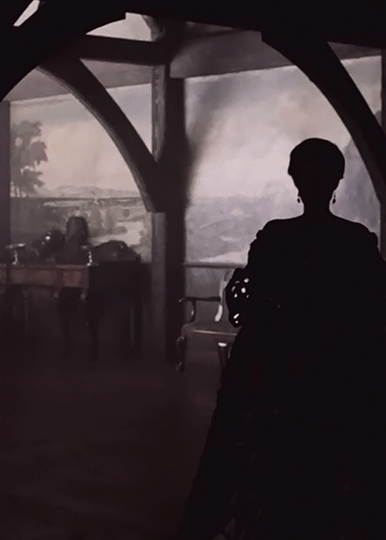

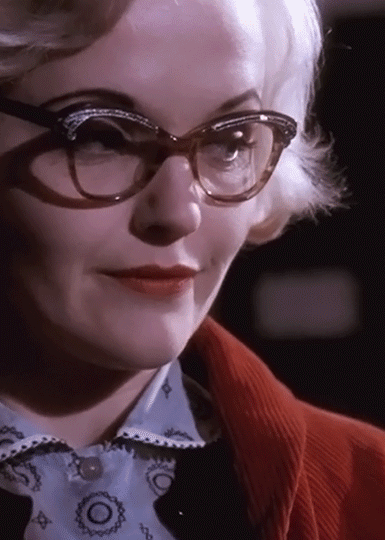
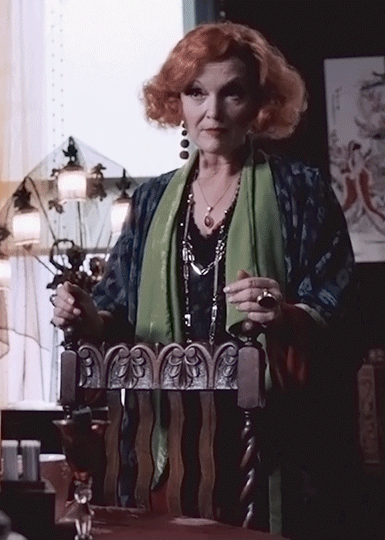


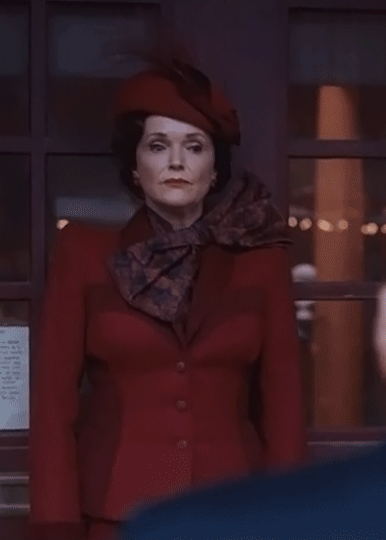
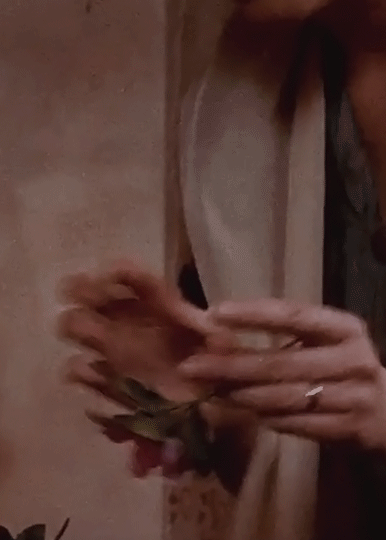

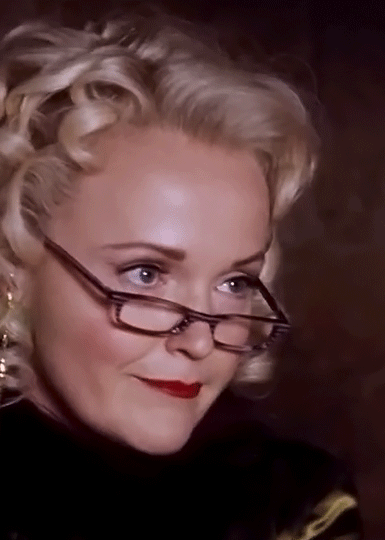
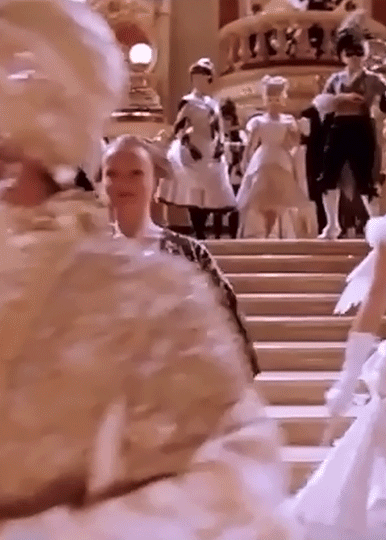
Miranda Richardson
Blackadder - 1986
Sleepy Hollow - 1999
Merlin - 1998
Dance With a Stanger - 1985
Good Omens (Season One) - 2019
The Crying Game - 1992
Snow White: The Fairest of Them All - 2001
Good Omens (Season Two) - 2023
Enchanted April - 1991
Damage - 1992
Harry Potter and the Goblet of Fire - 2005
Phantom of the Opera - 2004
#Miranda Richardson#Blackadder#Sleepy Hollow#Merlin#Dance with a Stanger#Good Omens#The Crying Game#Snow White: The Fairest of them all#Good Omens 2#Enchanted April#Damage#Harry Potter and the Goblet of Fire#Phantom of the Opera#Queenie#Lady Van Tassel#Queen Mab#Ruth Ellis#Madame Tracy#Jude#Queen Elspeth#Shax#Rose Arbuthnot#Ingrid#Rita Skeeter#Madame Giry#my gifs#Actress edits#mredits#I've loved Miranda longer than time has had meaning in my life#Miranda is PERFECT as Rita! I'm still mad af it's been tainted and I can't enjoy it anymore
164 notes
·
View notes
Note
Just saw a lovely post talk about some romantic things, like how it went against the "I'll die/kill for you cause i love you" and went instead, "would you not rest, care for yourself, come back safe, lay with me, be with me" Have Ruth and Tracy ever gotten in a disagreement like that? Or a burst of strong emotions that really showed how deeply they care for one another?
Ruth and Tracy are very interested compared to my other ships because they are like...the least romantic together.
They do have feelings for each other but they are very constipated emotionally and have such drastic ways of expressing their emotions to each other. And with Ruth being a cartoon, she constantly takes the most extreme routes and is used to seeing extreme reactions back so Tracy's more tired and subtle demeanor flies over her head sometimes and she even misreads him from time to time.
Ruth is also basically immortal while Tracy is not.
Which means Ruth can put herself through some crazy things while Tracy has to hang back whenever they do wind up confronting a killer toon. Ruth can take a bonk on the head with an oversized mallet and live. Tracy becomes a bloody and fractured stain on the ground.
That doesn't mean Tracy never worries about Ruth since all that slap stick has to hurt. So he typically tries to get Ruth to stop being so reckless but it comes off like a lecture while she is just "Oh PLEASE! I can handle 'em boss! Stop naggin me!" when Tracy doesn't want the only person who has shown genuine care for him (outside of Leroy and Miriam) to get hurt.
They frequently have arguments stemming from Ruth and her cartoon shenanigans and Tracy just not liking her getting knocked around so hard when she doesn't have to. Especially when it comes to Wesley and the weird tricks he pulls.
Miriam and Leroy often watch these fights with popcorn and soda in hand.
#ask#ask: anvil wings#ask: ruth#ask: tracy#ask: cookies and cream#that prompt does have the juiciest jack x nana energy tho
27 notes
·
View notes
Photo

Blessed Event (Roy Del Ruth, 1932)
26 notes
·
View notes
Text
No one told Ruth not to talk to cops.

From:
Chapter 2: That One Time I Almost Accidentally Framed a 19 Year Old For a Murder I Committed
2 notes
·
View notes
Text
New episode!
Script below the break
Hello and welcome back to The Rewatch Rewind! My name is Jane, and this is the podcast where I count down my top 40 most frequently rewatched movies in the 20 years from 2003 through 2022. Today I will be discussing number 27 on my list: MGM’s 1949 courtroom comedy Adam’s Rib, directed by George Cukor, written by Ruth Gordon and Garson Kanin, and starring Spencer Tracy, Katharine Hepburn, and Judy Holliday.
When housewife Doris Attinger (Judy Holliday) shoots her husband Warren (Tom Ewell) at the home of his lover Beryl Caighn (Jean Hagen), assistant district attorney Adam Bonner (Spencer Tracy) is assigned to prosecute her. Adam’s wife, defense attorney Amanda (Katharine Hepburn) is moved by Doris’s story and fed up with the double standard for men and women regarding adultery, so she decides to represent her. The tension in the courtroom leads to tension at home between the Bonners, which is further strained by their neighbor Kip (David Wayne), a musician who is very openly interested in Amanda.
I think this was the first Spencer Tracy/Katharine Hepburn movie I watched, but it was the sixth that they made together, out of nine total. Somehow this is the only one to make it into my top 40, although Pat and Mike was very close, with 14 views. Both Adam’s Rib and Pat and Mike were written specifically for Tracy and Hepburn, who were together in real life, by their friends Ruth Gordon and Garson Kanin, who were married to each other, so it’s unsurprising that the stars and the scripts were perfectly suited for each other. And yes, I am talking about the same Ruth Gordon who was also an actress and won an Oscar for being delectably creepy in Rosemary’s Baby. Looking back on my viewing history of Adam’s Rib is very interesting to me: I watched it twice in 2003, once in 2004, and three times in 2005, then took a fairly long break and saw it again in 2009, then 2011, then another break until 2016, and then I watched it twice in 2018, once in 2019, once in 2020, twice in 2021, and three times in 2022. So I watched it a lot soon after I started keeping track, then hardly revisited it at all until the last five years I was tracking, when I watched it a lot again. This wasn’t a conscious decision so I’m not sure exactly why it happened, but I do know that there are things I appreciate about it now that I didn’t quite catch when I was younger, and I think I needed some time away from it to realize that.
There are two main reasons I enjoy this movie. One is that it’s very entertaining and funny, and the other is that it’s fascinating from a historical socio-political perspective. When I was younger, I mainly focused on the first reason, but more recently the second reason has particularly compelled me to keep rewatching. I’m definitely still there for the comedy though. Some of it is broad and over-the-top, such as the scene when a witness, who is also a female weightlifter, picks up Adam in the courtroom and lifts him over her head, but most of it is more understated. As I mentioned at the end of last episode, I’m pretty sure my favorite part of the whole movie is when Beryl Caighn is on the stand and says she heard a noise, and when Adam asks her to clarify what kind of a noise, she pauses for a moment and replies, “Like a sound.” That is so perfectly tailored to my sense of humor that I can’t believe that my parents weren’t even alive when it was written. Also I would like to acknowledge that this was Jean Hagen’s film debut, and while she doesn’t have much screentime, every moment of her performance is gold. (Jean Hagen is, of course, best remembered for playing Lina Lamont in Singin’ in the Rain three years later.)
Adam’s Rib was also an important steppingstone in Judy Holliday’s career. She was starring in Born Yesterday on Broadway (which was also written by Garson Kanin) but was relatively unknown in Hollywood and was initially not considered for the film adaptation. Her performance in Adam’s Rib convinced the producer of Born Yesterday to give her a screen test, and she ultimately got the part and won an Oscar for it. Katharine Hepburn in particular worked hard to get her recognized, asking director George Cukor to focus more on Holliday than on her in their shared scenes, and then leaking stories to the press about how Holliday’s performance was so fabulous it stole the spotlight from her and Spencer Tracy. This behavior is particularly surprising from Katharine Hepburn if you recall how competitive and envious she was when working with Ginger Rogers in Stage Door. Clearly she was far more mature and self-assured at this point in her career than she had been 12 years earlier. And she was also correct: Judy Holliday gave a fabulous performance in Adam’s Rib, and nobody else could have played her role as well as she did in Born Yesterday. She had such perfect comedic timing. My second favorite part of Adam’s Rib, after the “noise like a sound” exchange, is when Amanda is interviewing Doris in jail – which was the main scene that convinced the producer of Born Yesterday to consider casting Judy Holliday. The way Holliday just keeps talking every time Hepburn thinks she’s finished and is about to say something is brilliantly done. Apparently Holliday was trembling because she was so nervous to be working with Hepburn, but she managed to turn that into part of her character and it works perfectly. That scene also features Eve March as Amanda’s secretary Grace, whose snide remarks greatly add to the humor as well. Watching these three women masterfully turning a serious situation into comedy never gets old.
The character I’ve changed my mind about the most over the years is the neighbor Kip, played by David Wayne. Kip is the kind of guy who clearly thinks he’s the funniest person in the room, and when I watched this movie in my early teens, I was inclined to agree with him. I enjoyed his antics, and I felt bad for him when Adam was mean to him. But as I continued to rewatch this movie, he started to irritate me, and now I can barely stand him. Granted, I do still enjoy his song “Farewell Amanda,” which in real life was written by Cole Porter, although the way he just casually walks into a married couple’s apartment and sings a love song to one of them is so rude. In last week’s episode I talked about the trope of the married couple’s male friend who is interested in the wife, and Kip is one of the most obnoxious instances of that trope. He’s not anywhere near as funny or charming as he thinks he is. This isn’t meant as a criticism of the movie; I feel like he’s intentionally irritating, and he’s definitely important to the plot and the message of the film. But I do think that when I was watching this movie mainly for the comedy, realizing that I no longer found Kip funny was a big part of why I started rewatching it less frequently.
But what I’ve grown to appreciate more recently about this movie is how progressive it was for its time, and the fascinating way that it has aged because of that. Bear in mind that this movie was made in 1949, shortly after WWII, very much in the “women stay home and support your man and raise those boomer children” era. So it was quite bold of this movie to question gender roles, particularly in terms of the infidelity double standard. After Amanda reads about the shooting in the paper but before she has taken the case, she asks Grace what she thinks about a man who cheats on his wife, and Grace replies, “Not nice, but…” and shrugs. Then Amanda asks, “What about a wife who cheats on her husband?” and Grace says, “Something terrible!” When Amanda demands to know why there’s a difference, Grace protests, “I don’t make the rules!” And Amanda retorts, “Sure you do; we all do!” And I think that’s such an important point: even if you don’t agree with social norms, accepting them and perpetuating them is equivalent to endorsing them. Amanda decides to argue that if a man confronted his cheating wife with a gun, people would consider him to be justified, and there shouldn’t be any difference in this case just because the genders are swapped. Adam, on the other hand, argues that nobody has the right to just show up at somebody’s house and shoot them. And what’s so great about this conflict is that they’re both partly right and partly wrong. Amanda’s right that women shouldn’t be punished more harshly for cheating on their spouses than men are, but at the same time, that doesn’t mean everybody should go around shooting each other. And Adam’s right about that part, but he’s wrong in the way he dismisses his wife’s legitimate concerns and fails to recognize the effects of misogyny on society and on his marriage.
It is a little odd that Doris is charged with attempted murder instead of assault with a deadly weapon or something like that, but this way it’s easier to believe that she is found innocent. She definitely did commit assault, but it doesn’t seem like she really meant to kill anyone. I’m kind of surprised the censors allowed her to be acquitted, since my understanding of production codes is that crime couldn’t be shown to pay. I guess Warren getting shot was his punishment for cheating, so now they’re even? I want to know what happens to the Attingers after the trial – hopefully they get divorced and manage to find some happiness – but we don’t get to find out because ultimately the story isn’t about them; it’s about the Bonners. Adam has moved out after the whole weightlifter-picking-him-up episode, and Kip has started to attempt to take his place. After the trial, Amanda is at Kip’s apartment to go over a contract with him, but she’s distracted with worry about what’s going to happen to her marriage, and instead of listening and being a supportive friend, Kip decides it’s a good time to confess his love for her, using the irresistible line that he’s in love with her because she lives across the hall and it’s so convenient. And then Adam bursts in with a gun, and Amanda, terrified, says, “You have no right! Nobody has the right-” and then realizes what she’s saying. Satisfied, Adam reveals that the gun is actually made of licorice, and Amanda is furious, but it’s kind of the best possible outcome here: Doris doesn’t have to go to jail, but her actions are not being condoned, which I assume is what appeased the censors. And then later Adam demonstrates that men and women are truly equal by crying to get what he wants, which is…not great, but…I guess it’s good to challenge the stereotype that masculine men aren’t supposed to cry? It’s just not great to perpetuate the stereotype that women cry to manipulate men.
And that’s when you have to bear in mind that this movie is 74 years old. In addition to outdated gender role assumptions, there’s some weird body shaming and normalization of domestic violence that is very uncomfortable. But on the whole, it does a pretty good job of supporting women standing up for themselves in a post-WWII, pre-second-wave feminism America. Also, in a time when pretty much the only non-white characters in mainstream Hollywood movies were servants, it is worth noting that there are some people of color in the background of Adam’s Rib. There’s a black man on the jury, and when Amanda brings in a bunch of witnesses to demonstrate that women are equal to men, there are a few women of color in the crowd. Granted, when the judge rules that only three are allowed to testify, all three are white women, and the juror doesn’t get to speak either, but the representation bar was so low that even this tiny amount of racial diversity among the extras feels noteworthy.
While I’m pretty sure it wasn’t intentional, this movie also shows the harms of amatonormativity, and possibly even heteronormativity. Doris and Warren certainly should not have gotten married, but amatonormativity told them that that was the life they should want. When Warren is on the witness stand, Adam asks him why he married Doris, and Warren responds, “How should I know? Why did you marry yours? Does anybody know?” The assumption that everybody wants and needs a long-term monogamous romantic and sexual relationship leads to so many incredibly dysfunctional marriages that the people trapped in them think they’re not only normal, but universal, and that’s a problem. Nobody should feel like they have to marry someone they can barely stand just to have a partner. And speaking of people I can barely stand, let’s go back to Kip. While I don’t like him as a character, I do find it interesting that he’s kind of queer-coded, and Adam in particular mocks him for being effeminate, yet he pursues and tries to seduce Amanda. Of course, being a rather effeminate man and being attracted to women are not mutually exclusive, but it does feel a bit like he’s going after Amanda because he thinks that’s what he’s supposed to do. I mean, he says he’s into her because she’s his neighbor and it’s convenient – not exactly the most convincing display of attraction. When Amanda finally understands what Kip is saying, she has this great line: “Now, you look here, Kip. I’m fighting my prejudices, but it’s clear that you’re behaving like a, like a – well, I hate to put it this way, but like a man!” – meaning in the entitled to women’s attention and bodies sense of the word. Which, as someone whose masculinity has been repeatedly called into question, is probably what he was going for. I can’t really blame him for struggling to figure out how to perform gender in a way that’s socially acceptable, but that’s not an excuse for being a jerk who refuses to take no for an answer. As Amanda pointed out earlier, we all make the rules. The only way to overthrow harmful norms is to refuse to perpetuate them. So to summarize what we’ve learned: only get married if you want to, not because you think you should; if you find out your spouse is cheating, either work it out or get divorced, but don’t shoot them; and listened to your married neighbor when she says she doesn’t want to have an affair with you.
If this movie sounds kind of weird, that’s because it is, but the true story that inspired it is, if anything, even weirder. When actors Raymond Massey and Adrienne Allen got divorced, they were represented by husband-and-wife lawyers William Dwight Whitney and Dorothy Whitney, who then divorced each other to each marry their client from that case. Garson Kanin and Ruth Gordon then took the idea of married lawyers on opposite sides of a trial and turned it into Adam’s Rib. While the acting is fabulous, ultimately the script is the best part of this movie, and it was even nominated for an Oscar, which has always been unusual for comedies. While in some ways this movie presents a cynical view of marriage, it is worth noting that Kanin and Gordon’s lasted for 43 years until her death in 1985 and seems to have been a relatively happy one. They were clearly both very talented writers, and I think the film’s commentary on gender roles greatly benefitted from having a man and a woman working on it together. Gender roles have changed a bit in the decades since this movie was made, so from that perspective it feels a bit outdated, but it definitely makes some important points that are still relevant. And if nothing else, the script is clever and the performances are captivating.
Thank you for listening to my analysis of another of my most rewatched movies. I appreciate those of you who have stuck with me through this stretch of relatively obscure older films. If you’ve been enjoying hearing about them, don’t worry, there will be plenty more, but if you’re ready for a break, good news: the next movie was made in the 21st century, and you’ve probably at least heard of it! As always, I will leave you with a quote from that next movie: “I haven’t slept with hundreds of men.”
#adam's rib#katharine hepburn#spencer tracy#judy holliday#garson kanin#ruth gordon#jean hagen#old hollywood#the rewatch rewind
7 notes
·
View notes
Text
WIP Wednesday
Sorry for a little lack of activity. I have been working a lot to finish my last course assignments. For now, here’s a wip of a new project I had been working on along side KRTB. In short: TAG 1966 remake. :)
@uniwolfcorn @skymaiden32 @teapotteringabout @knyee @riallasheng @janetm74 @the-original-sineater @myladykayo
-0-0-0-
The sun has just rose from the horizon, lighting up the ever-blue sky and ocean. In the wake of morning, a rather small, once volcanic island welcomed its warm rays, revealing a villa, which was also the main base of operations of the famous and illusive International Rescue.
Jefferson Grant Tracy, the head of the organization and patriarch of the Tracy family, was reading a recent newspaper of the latest news of from around the world, eating a basic cereal for breakfast in the dinning room.
“How’s the news, Mr. Tracy?” an old man with Asiatic features approached with visible curiosity as he was cleaning a plate with a towel.
“Well, Kyrano, things got pretty tense with that Zero-X project,” Jeff smiled at his old friend, then frowned with focus on the papers, “It says they were going to launch it today, though it seems that there’s some concerns about its technical issues failing again…”
“I’m pretty sure it was going to be something that your boys will pester you about…” Kyrano smirked at him.
“You don’t say!” the patriarch chuckled heartily, turning the next page to focus on some other things.
Grandma came out of the kitchen, holding a tray with a coffee pot and mug.
“I remember when you were 8 years old, you climbed a broken-down cabin to save a poor bird,” she began fondly, “I was against it at first, but then I couldn’t be even more proud of you.”
The patriarch didn’t argue with her. He quickly finished his bowl of cereal.
“Here, sonny boy. Help yourself with some coffee,” she put the tray on the dining table.
“Thank you, mother,” Jeff replied.
“Come on, Mr. Kyrano. Let’s finish that spicy soup for the next meal, shall we?” Grandma gave the housekeeper a warm grin.
“Thank you very much, Miss Tracy,” Kyrano gently bowed with a smile as the two elders went back to the kitchen.
Jeff puts down the newspaper on the table and took the pot and the mug to another table near a window.
He drank his hot beverage when he noticed a figure in the reflection of the pot. It was none other than Brains, the brilliant young engineer of International Rescue.
The genius was checking the newspaper behind Jeff, fixing his glasses with peek intrigue.
“Brains, what do you think of the technical aspects of this new version of the Zero-X?’ the patriarch loudly spoke suddenly.
The young engineer jumped from the sudden comment, “H-How do you know I-I’m, eh, reading a-about it, Mr. Tracy?”
“If you had read the newest studies of the British scientists, then you would know that there are the points on the tips of the ears that are extremely sensitive. And-”
Grandma, who just came back from the kitchen to pick up the empty tray, made a side-step to the stunned Brains, interrupting her son casually, “He sees you in the reflection of the pot.”
Jeff immediately burst out of laughter. The genius shortly followed.
#wip wednesday#my wips#my fanfics#Thunderbirds are go (1966)#thunderbirds#thunderbirds 1965#Thunderfam#thunderbirds fanfiction#Jeff Tracy#Brains#Kyrano#Ruth/Sally Tracy
19 notes
·
View notes
Text

September 1932. BLESSED EVENT — directed by Roy Del Ruth and obviously inspired by real-life newspaper columnist Walter Winchell — is a screamingly funny pre-Code comedy featuring Lee Tracy at his cynical, frenetic best as Alvin Roberts, a Winchell-like gossip columnist who finds his niche with scandalous birth announcements of the "married late this summer, anticipate a blessed event in October" variety, captivating and outraging half of New York and making Roberts a celebrity. Naturally, this also makes him many enemies, from Bunny Harmon (a young Dick Powell), an unctuous radio crooner Roberts loathes (and vice versa), to gangster Sam Gobel (Edwin Maxwell), who sends a tough Chicago hood named Frankie Wells (Allen Jenkins) to rub Roberts out. In the film's most memorable scene, Frankie is scared straight by Roberts' vividly horrific description of being put to death in the electric chair, a spiel Tracy delivers at a breathless, rapid-fire pace that would make even a vintage Robin Williams standup routine seem comparatively sedate. BLESSED EVENT also has a great supporting role for regular Warner Bros. character player Ruth Donnelly as Roberts' long-suffering secretary. ("You want to see Mr. Roberts? Oh, you want to sue Mr. Roberts. The line forms on the left.")
#movies#blessed event#roy del ruth#lee tracy#allen jenkins#ruth donnelly#dick powell#mary brian#pre code film#walter winchell#if people know tracy at all at this point#it's typically for bombshell and dinner at eight#but bombshell lags in its second half and dinner is a downer#this movie has no socially redeeming value#but if you enjoy snappy sarcastic high-energy comedy#it's a joy
2 notes
·
View notes
Text
sometimes sam and dean’s respective relationships to john remind me a little too much of my dad and his sister’s relationships to their late mother lol
#ivy.txt#he has two sisters but i’m not close with tracy so i don’t really know what her relationship to ruth was like#but i AM close with mary and she has a lot of anger that she’s very open about#and my dad uh. not so much
8 notes
·
View notes
Text
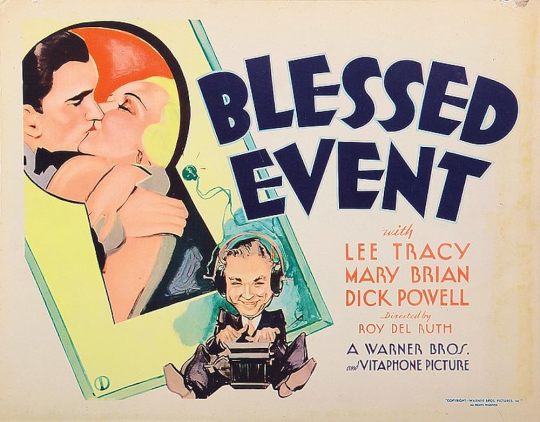

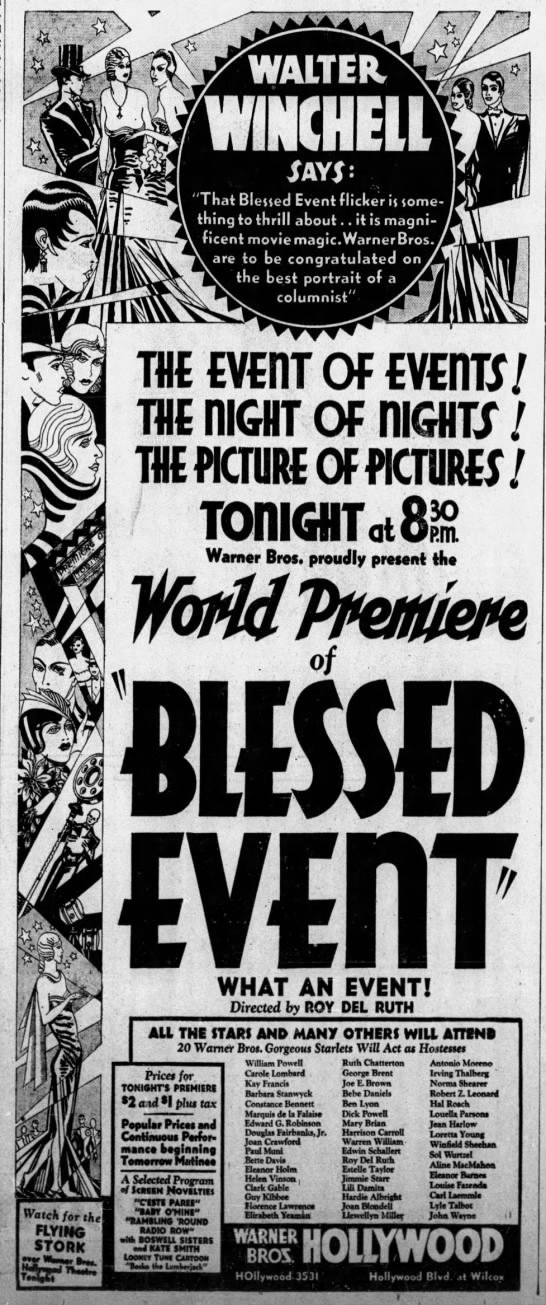

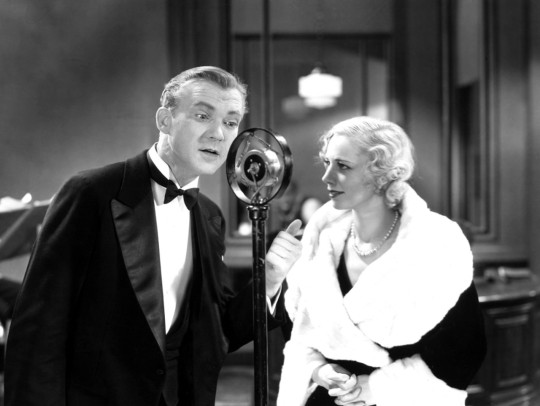
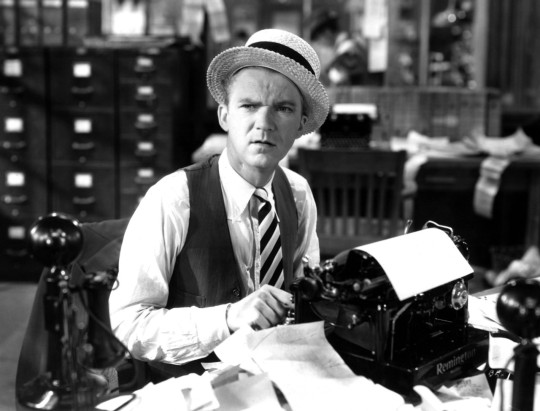
Blessed Event (1932) Roy Del Ruth
April 4th 2024
#blessed event#1932#roy del ruth#lee tracy#ruth donnelly#allen jenkins#mary brian#ned sparks#emma dunn#isabel jewell#dick powell#frank mchugh#edwin maxwell#walter walker#pre-code#PreCodeApril
0 notes
Text

Old photo of Tammi with family 🧸
0 notes
Photo




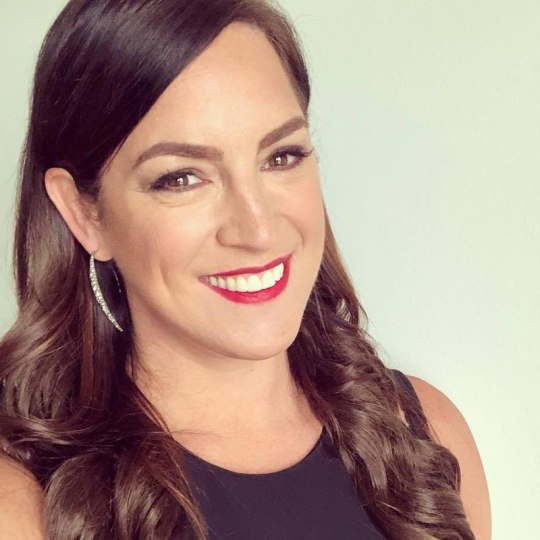
(via Monday Motivation: Female Activism Icons to Inspire You Today)
#Sarah Spain#Greta Thunberg#Gloria Steinem#Ruth Bader Ginsburg#activists#change makers#Live to Lead Netflix#Monday Mood#monday morning#Monday Motivation#feminism#Women's History Month 2023#women supporting women#Tracy Chamberlain Higginbotham#Tracy Higginbotham#Women TIES#Syracuse NY#New York State#Central New York#Women Rising#females
0 notes
Note
For Anvil Wings, I know Tracy and Ruth work with toons, but is there like a rehabilitation program for toons with a chance? Or is it just Ruth bonking them with a wooden mallet?
Tracy and Ruth work together to figure out how exactly toons have entered reality and what exactly Wesley's damage is (both as in what is wrong with him and what all exactly he's done) as well as try to defend the general population from the killer toons Wesley leads.
The only toons that never were on board with the "Lets kill people :D" energy Wesley was putting out has been Miriam and Leroy as they both are basically the Tom and Jerry/Willie Coyote and Roadrunner of the cartoon cast where they were so preoccupied running and chasing the other around that they never truly did pay Wesley much mind.
The toons that Ruth and Tracy face are other members of the cast that were friends with Ruth once and are currently friends and followers of Wesley. He's the main character and mascot and because he's the face of everything, all the other toons believe he's right on everything. Even if they disagree, Wesley eventually gets his way because he's basically the Bugs or the Mickey or the Kermit.
Everyone loves him.
So if he says that "Humans have amazing colors inside of them and we need to paint the town red with it" then of course everyone will follow behind him.
Sadly, due to this practically cult mindset, even if Ruth beats the shit out of a toon, they'll just run right back down the rabbit hole they came from and return to Wesley.
At the moment, Tracy, Ruth, Miriam, and Leroy haven't figured out how to get their friends back to normal. The only solution they have is to try and snap Wesley out of whatever homicidal thrill spree he is having but that pesky rabbit is stubborn in his ways and is super cunning.
So the best Tracy and Ruth can do is just try to keep the body count low and beat toons before they get a chance to beat down some humans into stains.
14 notes
·
View notes
Text
The Ultimate Dark Academia Book Recommendation Guide Ever
The title of this post is clickbait. I, unfortunately, have not read every book ever. Not all of these books are particularly “dark” either. However, these are my recommendations for your dark academia fix. The quality of each of these books varies. I have limited this list to books that are directly linked to the world of academia and/or which have a vaguely academic setting.
Dark Academia staples:
The Secret History by Donna Tartt
If We Were Villains by M.L. Rio
Dead Poets Society by Nancy H. Kleinbaum
Vita Nostra by Maryna Dyachenko
Dark academia litfic or contemporary:
Bunny by Mona Awad
The Idiot by Elif Batuman
These Violent Delights by Micah Nemerever
White Ivy by Susie Yang
The Cloisters by Katy Hays
Never Let Me Go by Kazuo Ishiguro
The Lake of Dead Languages by Carol Goodman
A Separate Peace by John Knowles
Black Chalk by Christopher J. Yates
Attribution by Linda Moore
Dark academia thrillers or horror:
In My Dreams I Hold a Knife by Ashley Winstead
The Maidens by Alex Michaelides
Ghosts of Harvard by Francesca Serritella
Catherine House by Elisabeth Thomas
Plain Bad Heroines by Emily M. Danforth
They Never Learn by Layne Fargo
The It Girl by Ruth Ware
Never Saw Me Coming by Vera Kurian
Dark academia fantasy/sci-fi:
Babel: An Arcane History by R.F. Kuang
The Atlas Six by Olivie Blake
Ninth House by Leigh Bardugo
A Lesson in Vengeance by Victoria Lee
The Starless Sea by Erin Morgenstern
Vicious by V.E. Schwab
A Discovery of Witches by Deborah Harkness
The Betrayals by Bridget Collins
Dark academia romance:
Gothikana by RuNyx
Alone With You in the Ether by Olivie Blake
Dark academia YA or MG:
Truly Devious by Maureen Johnson
A Deadly Education by Naomi Novik
Ace of Spades by Faridah Àbíké-Íyímídé
The Raven Boys by Maggie Stiefvater
Legendborn by Tracy Deonn
Crave by Tracy Wolff
Wilder Girls by Rory Power
The Harry Potter series by J.K. Rowling
Dark academia miscellaneous:
My Dark Vanessa by Kate Elizabeth Russell
Disorientation by Elaine Hsieh Chou
Alphabet of Thorn by Patricia A. McKillip
#dark academia#dark academia books#dark academia aesthetic#poc dark academia#light academia#chaotic academia#books and literature#book blog#ya books#books#book recs#book recommendations#the secret history#if we were villains#babel an arcane history#the atlas six#ninth house#legendborn#dead poets society#bookblr#bookstagram#academia#academic#bookish#vicious ve schwab#the maidens#the raven boys#vita nostra
10K notes
·
View notes
Text

Briana via Tracy’s IG story | July 15, 2022
#7.15.22#briana jungwirth#brianasrealaccount#freddie tomlinson#tracy stories#tracy clark#tammi clark#brett clark#ashley clark#austin clark#ruth clark
1 note
·
View note
Note
was your goal this round to get jimmy and cary out bc as a philadelphia story truther this is my joker origin story
i swear that was not the goal but oh no oops what's this doing here
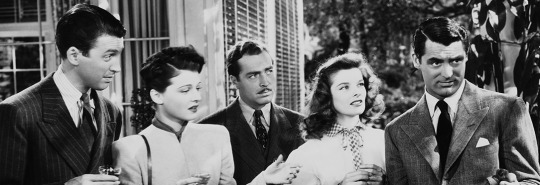
This is a poll on the characters—not the actors! If you haven't watched The Philadelphia Story, what are you doing here
#tw on the philadelphia story...there's a period racial slur (not directed at anyone in particular but still there) and a shove.#i think that's it? but go forward with caution if you have tws. I love you <3#minis#silly times#hotvintagepoll#the philadelphia story#asks
319 notes
·
View notes